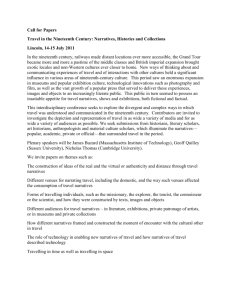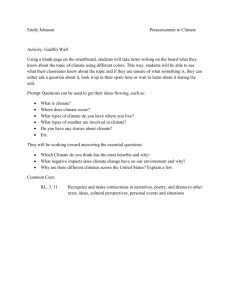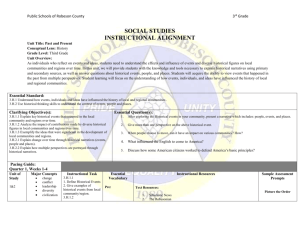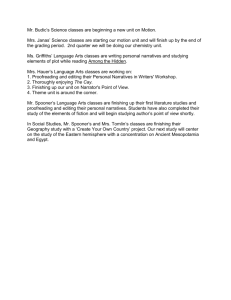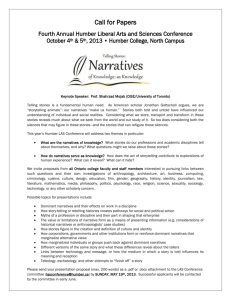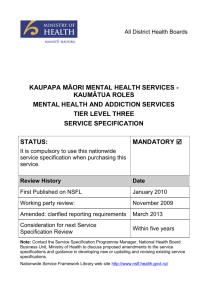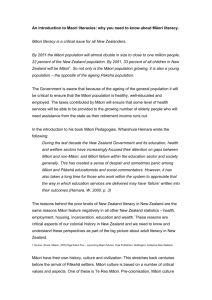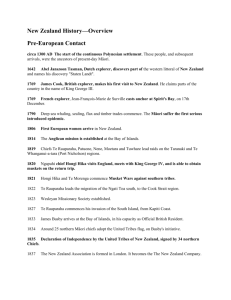Module 6a Workshop activity 2 The Narratives Part b
advertisement
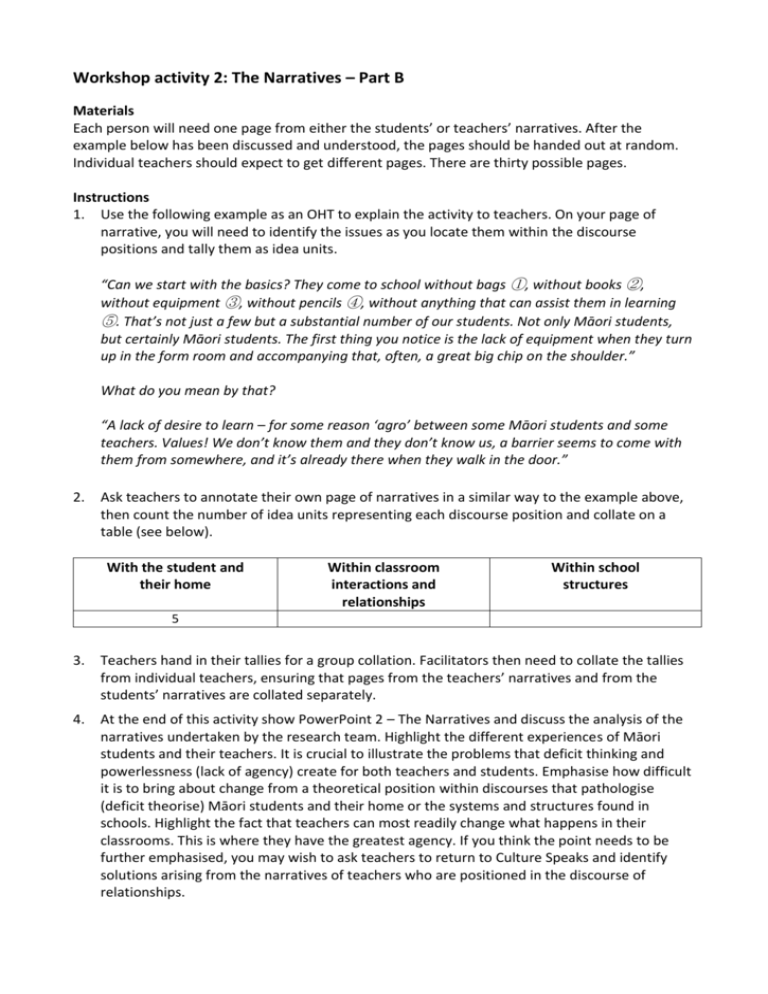
Workshop activity 2: The Narratives – Part B Materials Each person will need one page from either the students’ or teachers’ narratives. After the example below has been discussed and understood, the pages should be handed out at random. Individual teachers should expect to get different pages. There are thirty possible pages. Instructions 1. Use the following example as an OHT to explain the activity to teachers. On your page of narrative, you will need to identify the issues as you locate them within the discourse positions and tally them as idea units. “Can we start with the basics? They come to school without bags ①, without books ②, without equipment ③, without pencils ④, without anything that can assist them in learning ⑤. That’s not just a few but a substantial number of our students. Not only Māori students, but certainly Māori students. The first thing you notice is the lack of equipment when they turn up in the form room and accompanying that, often, a great big chip on the shoulder.” What do you mean by that? “A lack of desire to learn – for some reason ‘agro’ between some Māori students and some teachers. Values! We don’t know them and they don’t know us, a barrier seems to come with them from somewhere, and it’s already there when they walk in the door.” 2. Ask teachers to annotate their own page of narratives in a similar way to the example above, then count the number of idea units representing each discourse position and collate on a table (see below). With the student and their home Within classroom interactions and relationships Within school structures 5 3. Teachers hand in their tallies for a group collation. Facilitators then need to collate the tallies from individual teachers, ensuring that pages from the teachers’ narratives and from the students’ narratives are collated separately. 4. At the end of this activity show PowerPoint 2 – The Narratives and discuss the analysis of the narratives undertaken by the research team. Highlight the different experiences of Māori students and their teachers. It is crucial to illustrate the problems that deficit thinking and powerlessness (lack of agency) create for both teachers and students. Emphasise how difficult it is to bring about change from a theoretical position within discourses that pathologise (deficit theorise) Māori students and their home or the systems and structures found in schools. Highlight the fact that teachers can most readily change what happens in their classrooms. This is where they have the greatest agency. If you think the point needs to be further emphasised, you may wish to ask teachers to return to Culture Speaks and identify solutions arising from the narratives of teachers who are positioned in the discourse of relationships. Worksheet Activity 2: The Narratives of Experience – Part B Instructions 1. On your page of narrative, you will need to identify the issues, as they are located within the discourse positions, and tally them as idea units. Below is an example for you to use “Can we start with the basics? They come to school without bags 1, without books 2, without equipment 3, without pencils 4, without anything that can assist them in learning 5. That’s not just a few but a substantial number of our students. Not only Māori students but certainly Māori students. The first thing you notice is the lack of equipment when they turn up in the form room and accompanying that, often, a great big chip on the shoulder.” What do you mean by that? “A lack of desire to learn – for some reason ‘agro’ between some Māori students and some teachers. Values! We don’t know them and they don’t know us, a barrier seems to come with them from somewhere and it’s already there when they walk in the door.” 2. Annotate your own page in a similar way then count the number of idea units representing each discourse position and collate in a table (see below). With the student and their home Within classroom interactions and relationships Within school structures 5 3. Hand in your tally for a group collation ensuring you identify to the facilitator collating the tallies whether your tally is from the narratives of the students or the teachers.


